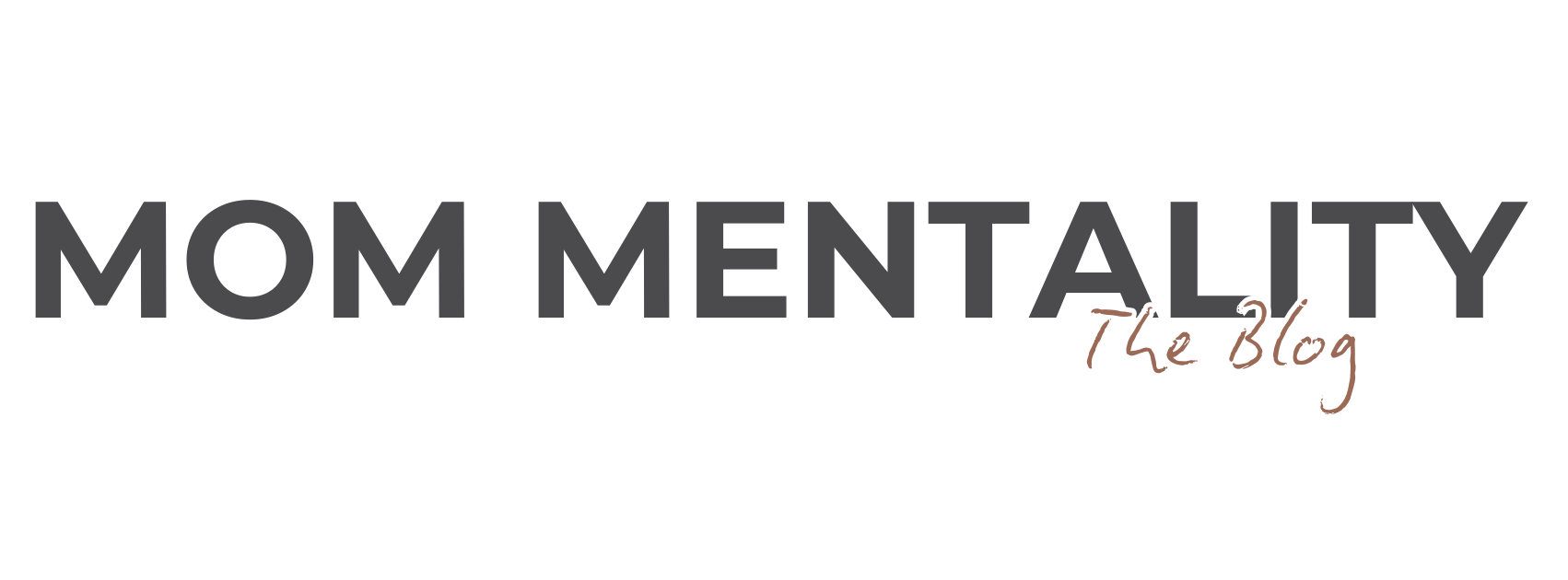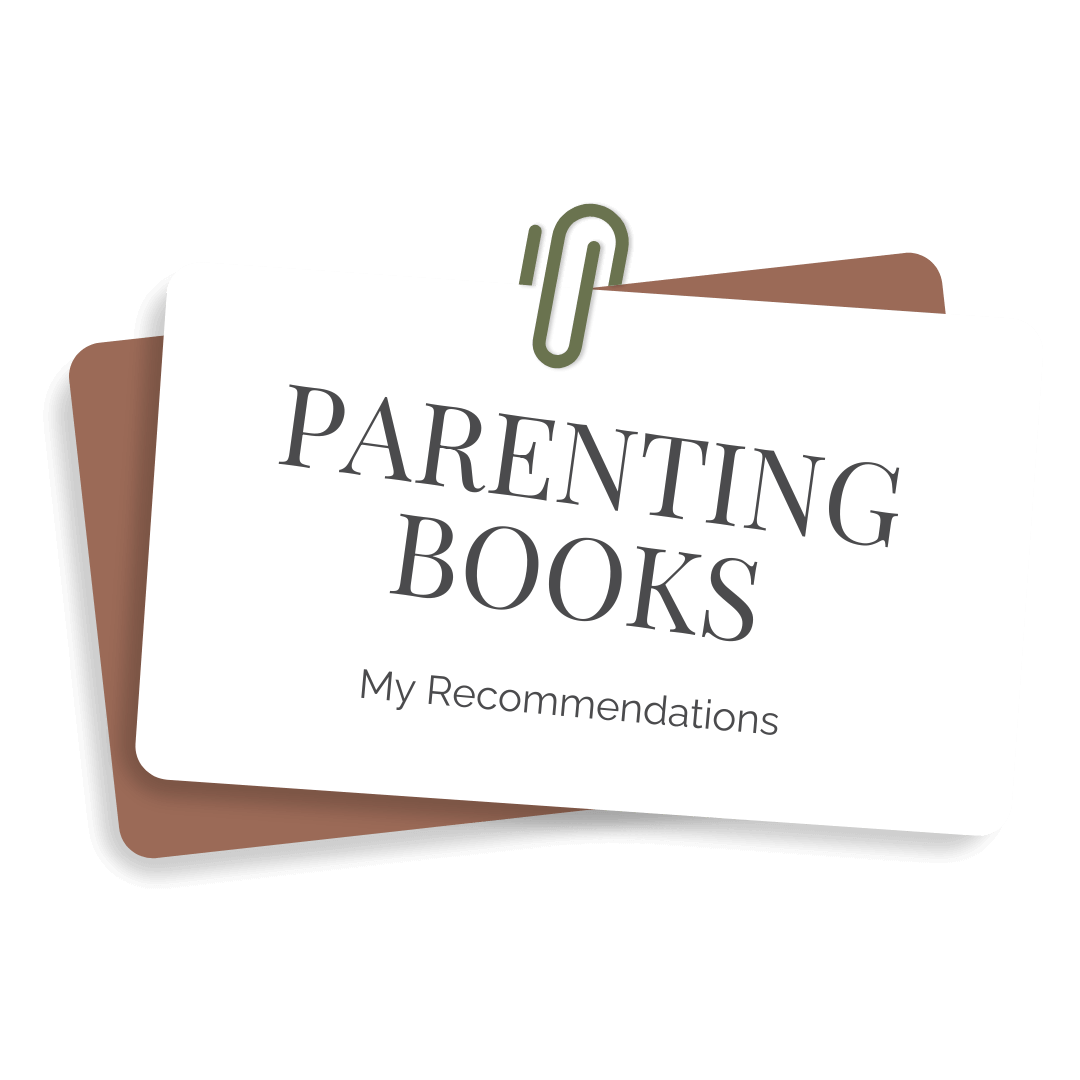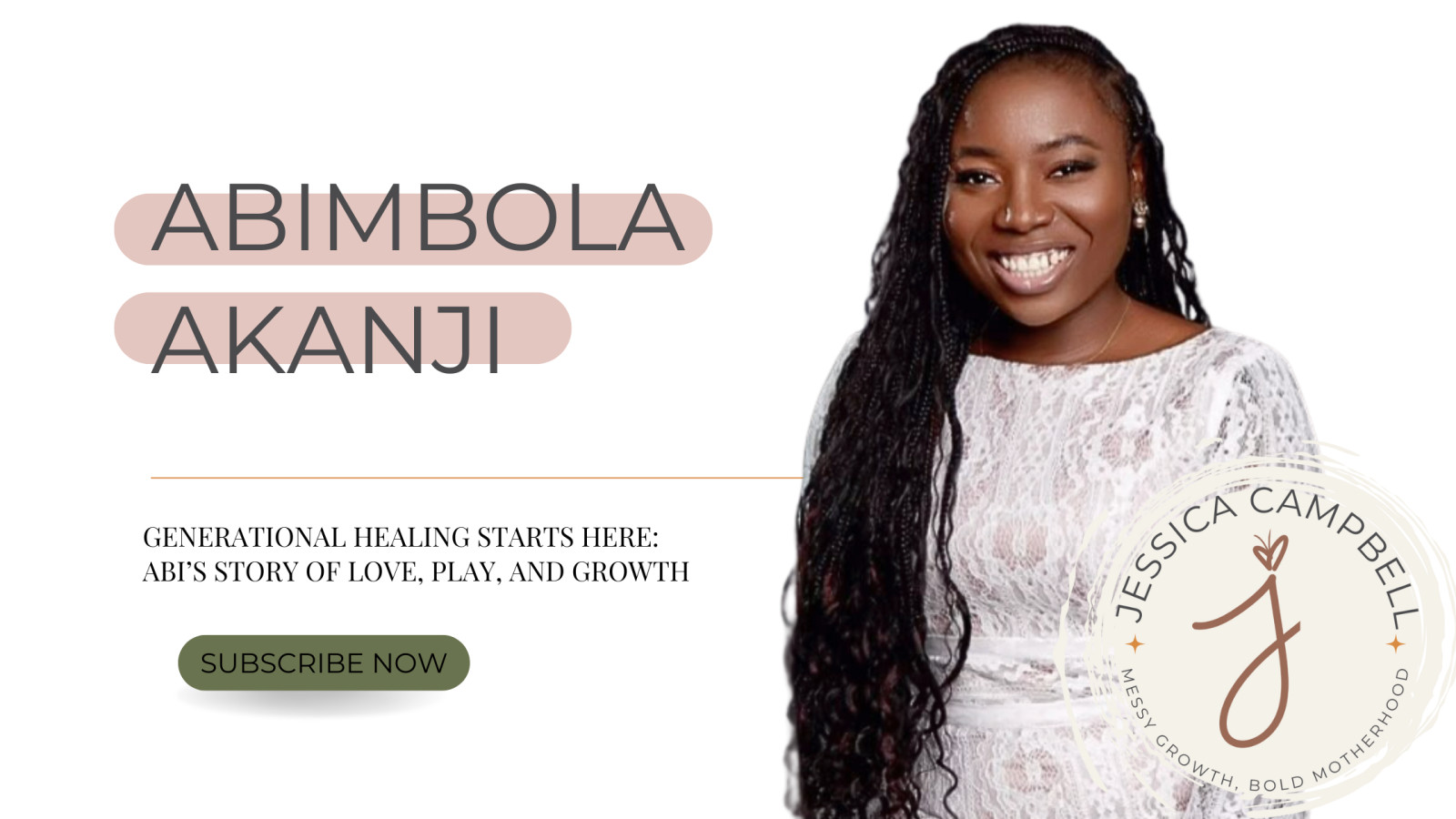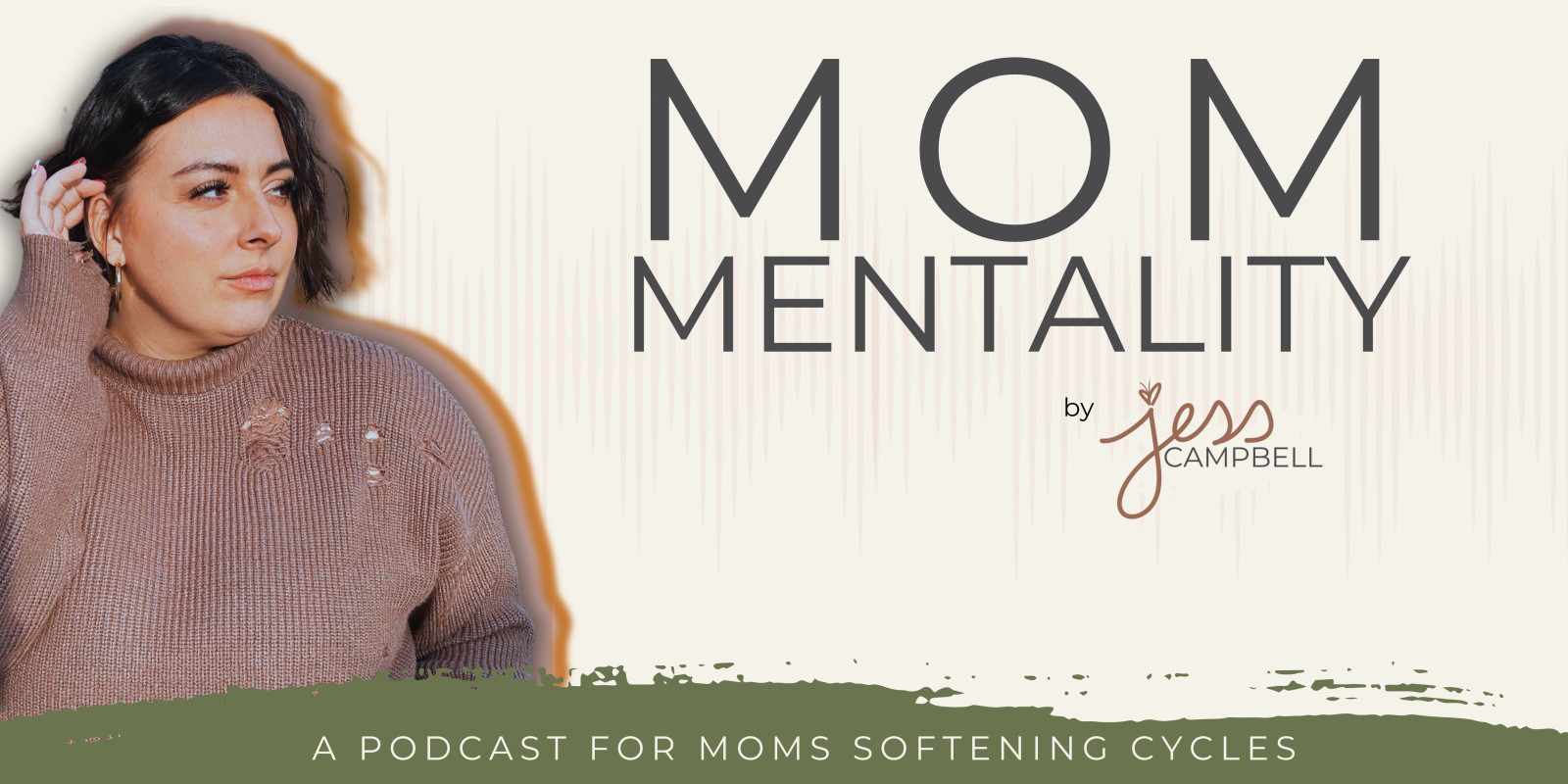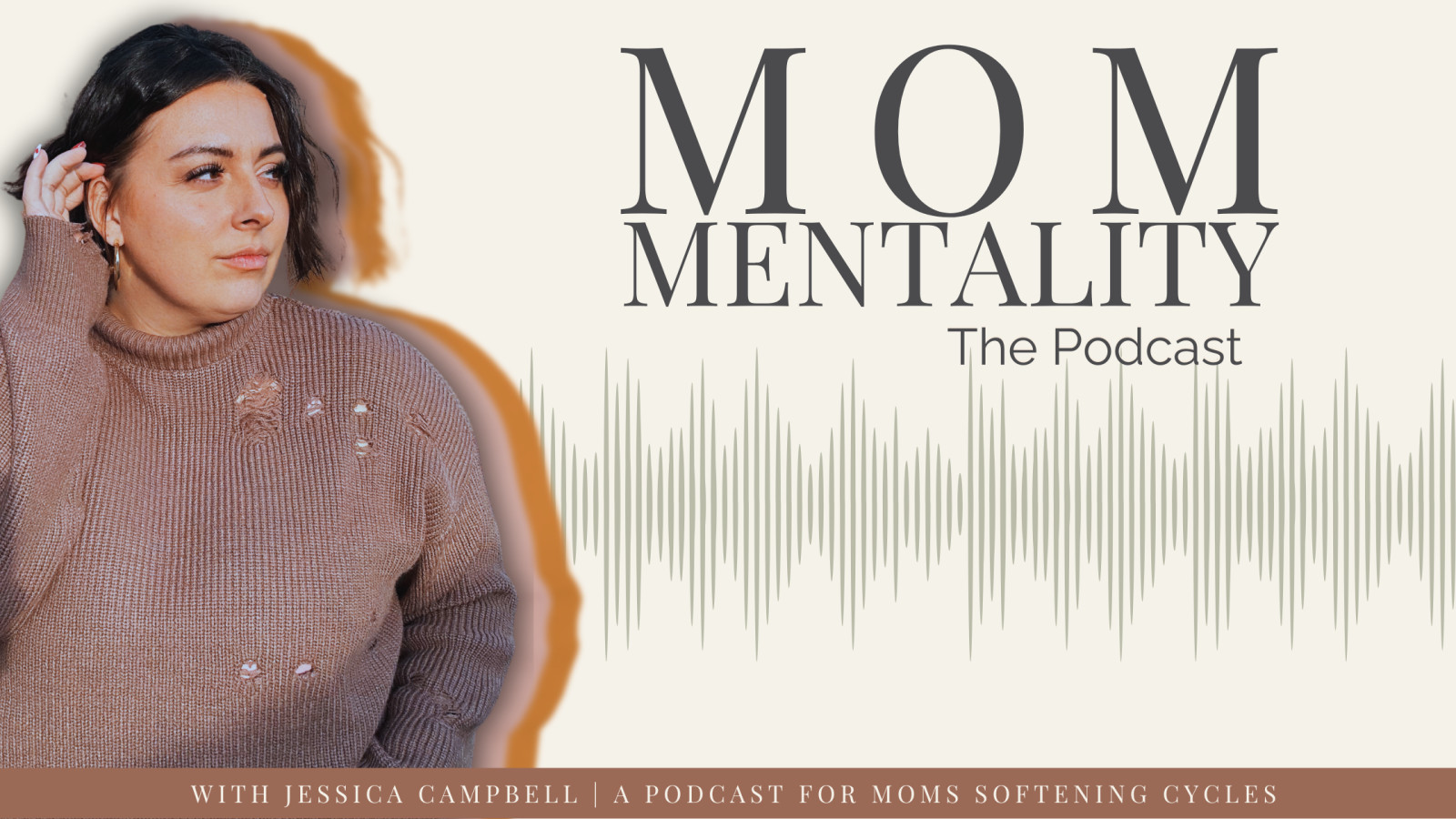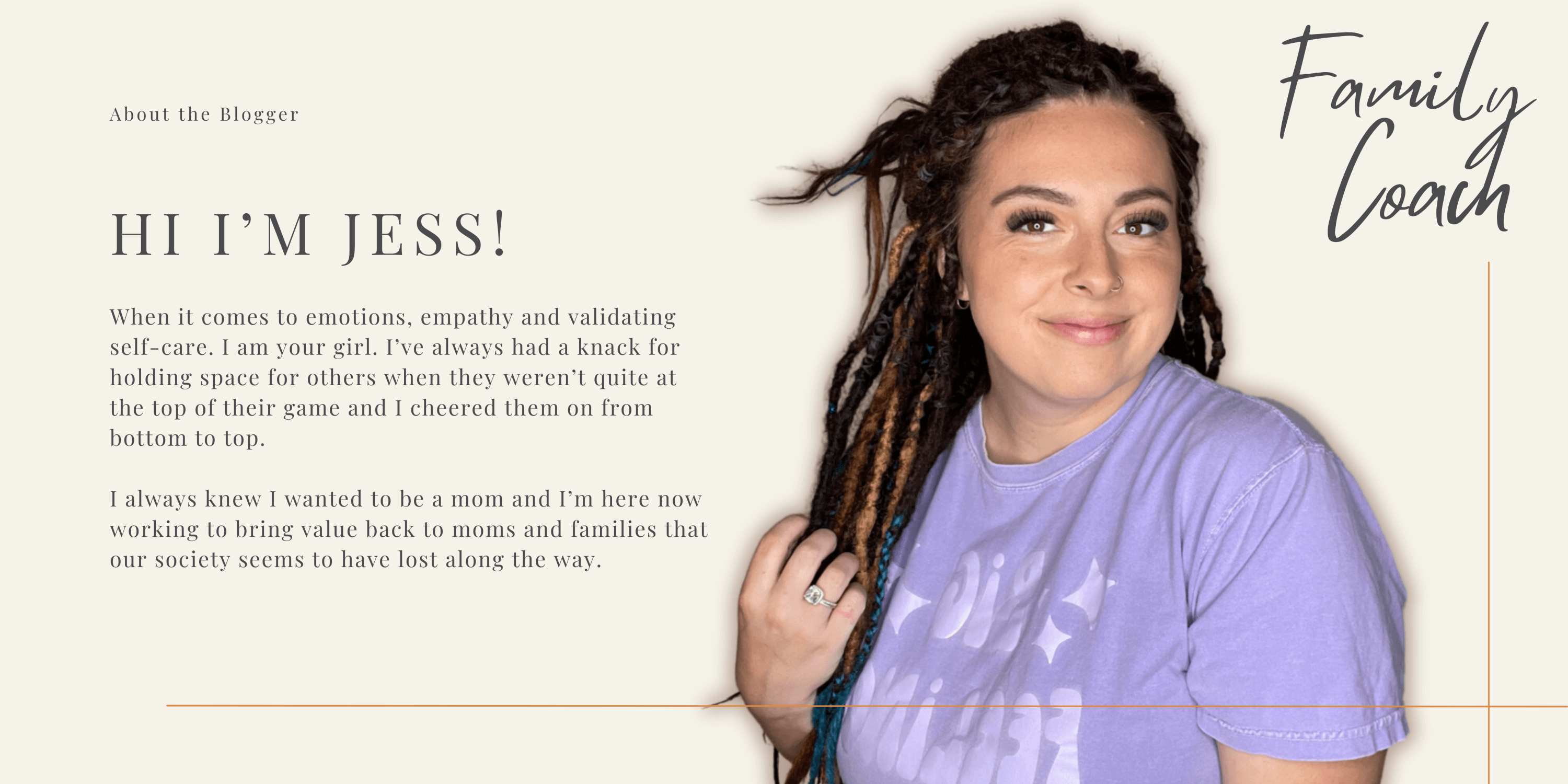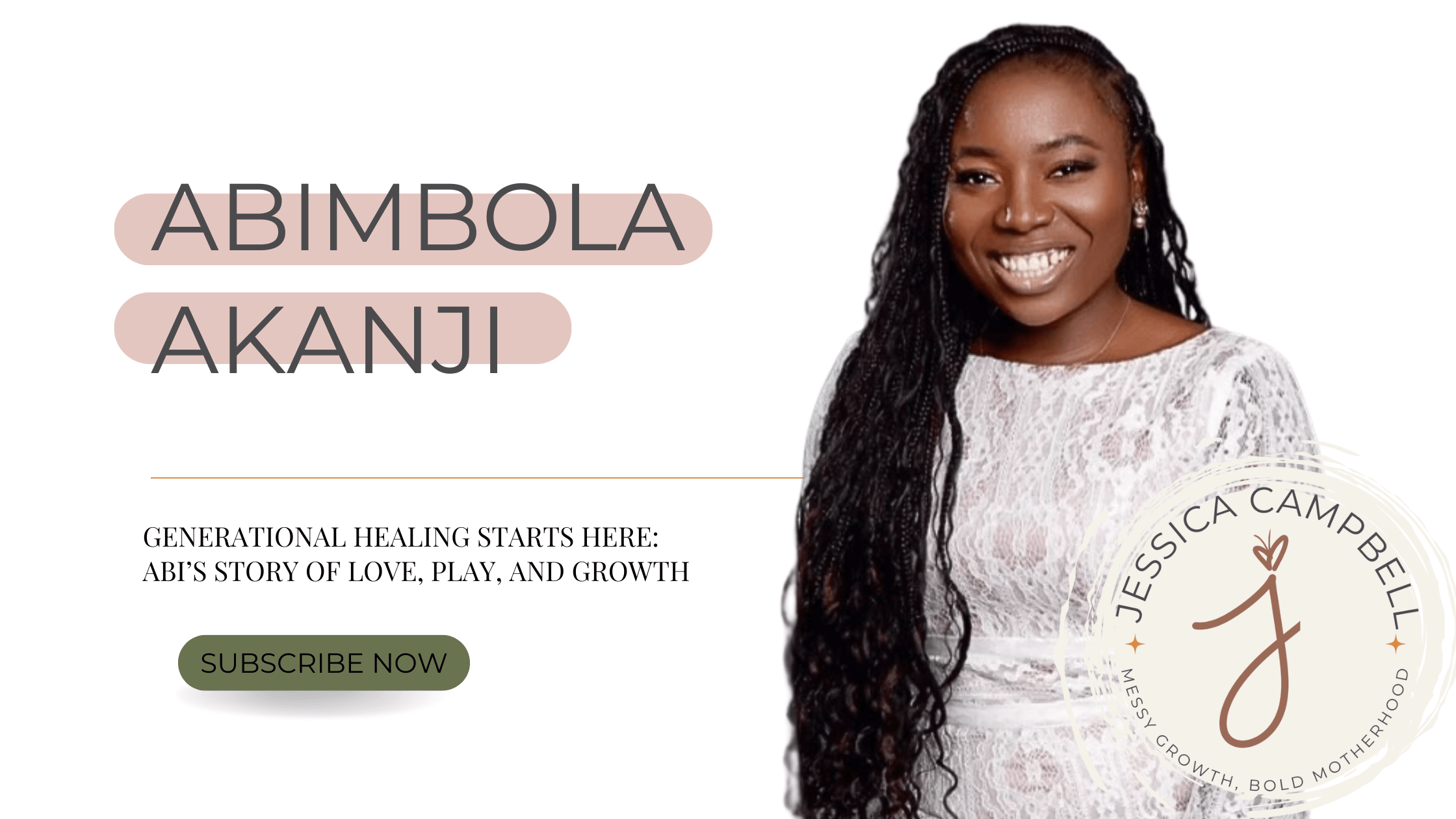
Motherhood. It’s one of those things you think you’re prepared for—until you’re not. You read the books, you watch the videos, you might even sign up for a parenting class or two. But then you’re faced with the real, raw moments: a screaming toddler at 2 a.m., the guilt after you’ve raised your voice, the realization that you’re repeating patterns you swore you’d break.
That’s where Abi’s story comes in. I had the privilege of sitting down with her recently, and let me tell you—it was one of those conversations that sticks with you. Abi is a mom of two adorable girls, a government worker serving Canadian citizens, and a parent coach on the side. But beyond the impressive resume, what struck me most was her honesty about the hard stuff—the generational cycles, the emotional disconnect, and the conscious work she’s doing to heal herself so she can parent differently.
And that’s exactly what this post is about: breaking those patterns, building connection, and giving yourself grace through the messy process of parenting.
The Weight of Generational Patterns
Abi’s story starts with her mother. Actually, it goes even further back—to her grandmother, who was determined to give her daughter a better life than she had. For Abi’s grandmother, that meant education. So, at just four years old, Abi’s mom was sent away to live with an aunt who promised her schooling and a better future.
But instead of finding love and stability, Abi’s mom found herself working as a caretaker for her aunt’s children. She was hawking eggs at a bus station at 4 a.m., enduring verbal abuse, and surviving on the bare minimum. The emotional warmth and connection we all crave as kids? It wasn’t there.
And yet, Abi’s grandmother thought she was doing the right thing—because survival and education were the priority. Emotional connection wasn’t even part of the conversation.
Fast forward to Abi’s mom. Determined to give her own children a better life, she focused on higher education. Abi and her siblings were provided for—they had the stability her mom never did. But that emotional closeness? Still missing.
Abi could feel the intention behind her mom’s actions—the love was there, but the connection wasn’t. And that’s where the cycle kept repeating.
Making the Promise to Do It Differently
Abi realized early on that she was carrying this emotional disconnect into her own parenting. “I promised myself I wouldn’t spank my kids or use punishment to discipline them,” she shared.
But even with that promise, the irritability would creep in. The smallest things would set her off—a tantrum over the wrong color cup or a fight between siblings—and suddenly she was raising her voice. And the guilt that followed? That was the worst part.
It wasn’t until Abi started doing the work—really digging into the root causes of those triggers—that things started to shift. She realized that her reactions weren’t about her kids’ behavior. They were about her own unresolved patterns and emotional wounds.
“I was living my parents’ trauma,” she said. “And if I didn’t change it, I was going to project it onto my kids.”
Finding Connection Through Play
One of Abi’s biggest breakthroughs came when she discovered the power of play.
It sounds simple, right? Just play with your kids. But for Abi, this didn’t come naturally. Play felt foreign, even uncomfortable at first. But she committed to trying.
She started small—just five minutes before or after bedtime reading. And what she discovered was that play wasn’t just about fun—it was about connection.
“When I play with them, that’s when I can really talk to them,” Abi said. “That’s when I can say, ‘Hey, I noticed you got upset yesterday. What happened there?’”
Play became a bridge. It created emotional safety and opened the door for deeper conversations. And the laughter? That was healing for Abi as much as it was for her kids.
“I started looking forward to it,” she said. “It was therapeutic for me. I realized that even when I was stressed, playing with them made me feel better.”
Abi even did a 28-day play challenge—intentionally setting aside time each day to play. And the results were immediate. Her kids started opening up more. The behavioral challenges lessened. The yelling decreased. And most importantly, the connection deepened.
Pausing and Breathing: The Small Hack That Changed Everything
Abi also shared one of the most powerful (and surprisingly simple) tools she learned in her parent coaching journey: pausing and breathing.
“When my kids would do something that triggered me, I’d literally just stop and take a breath,” Abi said. “My daughter could see me doing it. She’d see me pause and breathe, and that alone changed the dynamic.”
Instead of snapping or yelling, Abi started responding calmly and with intention. She got down on their level, softened her tone, and addressed the situation from a place of connection rather than control.
The change didn’t happen overnight. Sometimes it took hours for her to reflect and realize how she could’ve handled a situation differently. But over time, the reflection period got shorter. Now, she often catches herself mid-reaction.
“Three hours turned into 30 minutes, which turned into five minutes,” Abi said. “That’s growth.”
Breaking Cycles Is Hard—but Worth It
Here’s the thing: breaking generational cycles isn’t easy. It’s not as simple as deciding one day to “parent differently.” It requires awareness, patience, and a willingness to sit with the discomfort of your own childhood wounds.
Abi admitted that it wasn’t just her kids who benefited from the work—it changed her marriage, too. The triggers and emotional patterns that showed up in parenting were also showing up with her husband. The more she worked on herself, the more her relationship with him improved.
“It’s not just about parenting,” Abi said. “It’s about healing yourself.”
Parenting Isn’t a Destination—It’s a Process
One of the most powerful things Abi shared was the realization that parenting isn’t about perfection. It’s not a straight line to some magical end point where you’ve got it all figured out. It’s a process—a messy, beautiful, ongoing process.
And when you focus on connection over perfection, everything changes.
Abi’s story reminds us that you don’t have to repeat the patterns you grew up with. You get to decide what kind of parent you want to be. You get to build a new foundation. You get to create a home where your kids feel emotionally safe and deeply connected.
And it starts with awareness.
Final Thought: The Small Wins Matter
Abi left us with this piece of advice:
“The answer to your parenting struggles could be in your generational patterns. Look inward. Understand what you’re carrying, and don’t be afraid to break it apart.”
Small wins matter. Not yelling when you normally would. Sitting down for five minutes of play. Taking a deep breath before reacting. These tiny shifts are how generational cycles get broken.
Parenting is hard—but healing through it? That’s the real work. And Abi is proof that it’s possible.
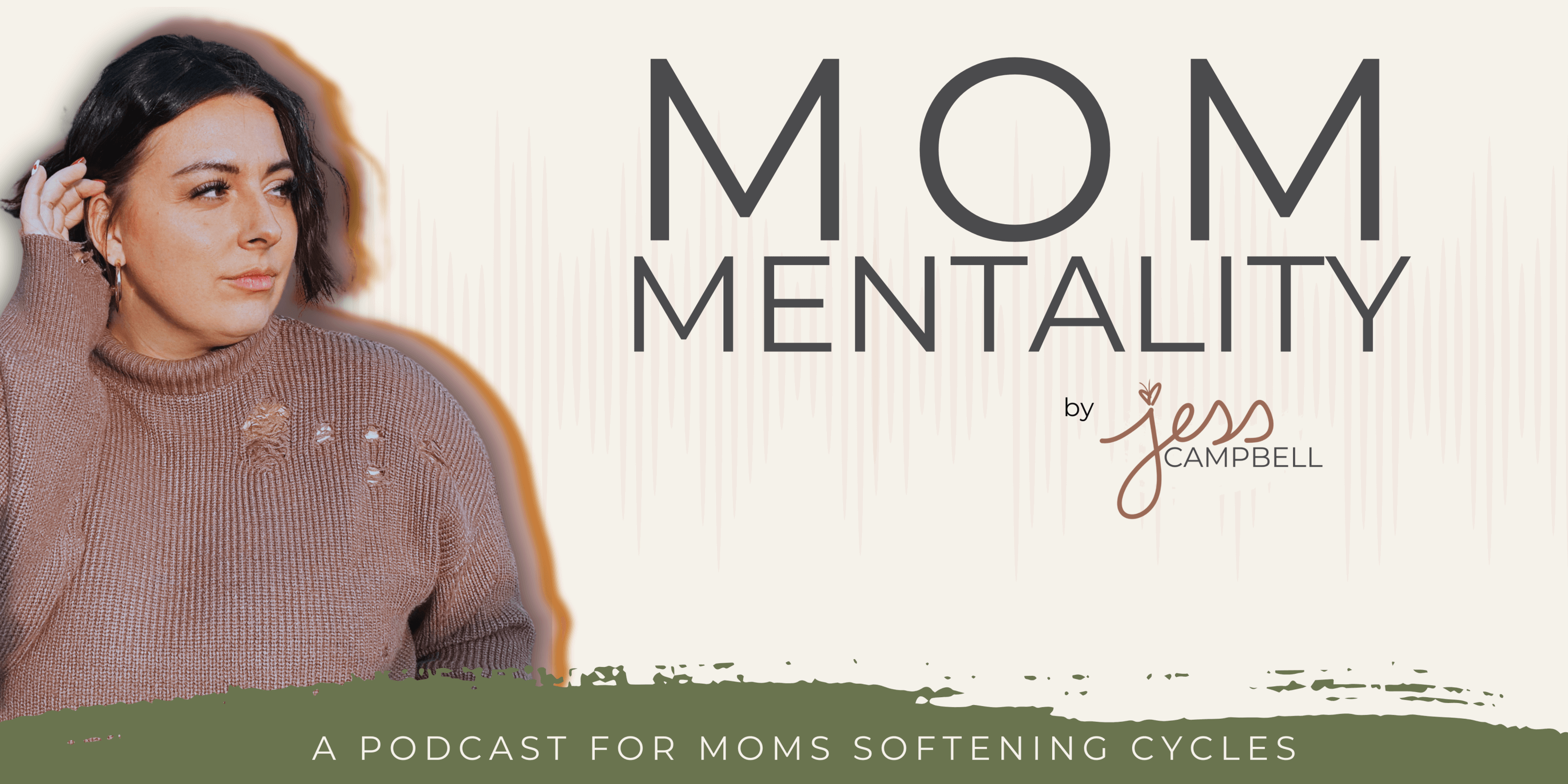
In this blog post, we’ll explore how toxic parenting affects your mindset, how to heal while raising children, and practical strategies to ensure your kids grow up in a healthier environment than you did. If you’ve ever felt triggered by your child’s emotions, struggled with guilt, or found yourself repeating behaviors you swore you’d never mimic—this is for you.
What is a Toxic Parent?
A toxic parent isn’t just someone who was strict or set firm rules. Toxic parenting involves behaviors that are emotionally damaging and manipulative, often leading to lifelong struggles with self-worth, anxiety, and emotional regulation. Some common traits of toxic parents include:
- Dismissing or invalidating your feelings
- Using guilt, fear, or manipulation to control you
- Explosive anger and making you responsible for their emotions
- Ignoring or neglecting emotional needs
- Making love feel conditional on performance or obedience
If any of these sound familiar, it’s important to acknowledge that your childhood experiences were real and had an impact on you. You’re not overreacting, and you’re not alone.
How Toxic Parenting Affects You as a Parent
Even if you swore you’d never be like your parents, their behaviors can still show up in your own parenting—especially in high-stress moments. You might notice yourself:
- Doubting your parenting decisions and overanalyzing every choice
- Feeling overwhelmed by your child’s big emotions because you weren’t allowed to express your own
- Struggling with perfectionism and guilt, feeling like you need to be a “perfect” mom
- Overcompensating by giving your kids everything you never had
- Shutting down emotionally when parenting becomes too overwhelming
The good news? The fact that you’re aware of these patterns means you’re already breaking the cycle. Many people never even recognize these behaviors, but you have the self-awareness to make changes—and that’s powerful.
Steps to Healing While Raising Kids
Healing from toxic parenting is a journey, not a destination. Here are some actionable steps to help you heal while showing up as the parent you want to be.
1. Acknowledge & Validate Your Feelings
Your experiences were real, and they shaped who you are today. Healing starts with giving yourself permission to feel what you feel—without gaslighting yourself or making excuses for your parents. If it hurt you, it mattered.
2. Reparent Yourself
Reparenting means giving yourself the love, validation, and support you didn’t receive as a child. Ask yourself:
- What did I need as a child that I didn’t get?
- How can I give that to myself now?
- How can I provide that for my children?
If your parents dismissed your feelings, practice validating your own emotions. If you were never comforted, start offering yourself self-compassion. The more you heal your inner child, the more present and responsive you can be with your own kids.
3. Regulate Your Nervous System
Childhood trauma keeps your nervous system in survival mode, making it easy to react impulsively when triggered. The key is learning to self-regulate so you can respond instead of reacting.
Try:
- Deep breathing exercises (like box breathing or belly breathing)
- Taking an “empowered pause” before reacting
- Placing a hand on your heart and reminding yourself, “I am safe. I am in control.”
- Grounding techniques like touching something cold, counting objects, or listening to calming music
When you learn to regulate yourself, you can help your children do the same.
4. Teach Emotional Intelligence to Your Kids
Breaking the cycle means teaching your kids what you weren’t taught. Instead of shutting down their emotions like your parents may have done, help them navigate their feelings in a healthy way.
- Validate their emotions (“It’s okay to be sad. I’m here for you.”)
- Teach them words for their feelings (“It sounds like you’re feeling frustrated.”)
- Model self-regulation (“I’m feeling overwhelmed, so I’m going to take a deep breath before I respond.”)
By giving your children emotional intelligence skills, you’re ensuring they won’t have to heal the same way you do.
5. Repair After Mistakes
You will make mistakes. That’s a fact. But the key to breaking the cycle isn’t being a perfect parent—it’s knowing how to repair when things go wrong.
- Apologize when necessary (“I’m sorry I yelled. That wasn’t okay.”)
- Show your child that mistakes are part of learning (“I got frustrated, but I’m working on being more patient.”)
- Model accountability and growth
Your children don’t need perfection—they need presence.
6. Set Boundaries with Toxic Parents
If your toxic parent is still in your life, it’s essential to set boundaries to protect your mental health and your children. Remember:
- You don’t owe them access to your children if they’re harmful
- You can set boundaries around communication, visits, and interactions
- Guilt is often a sign of conditioning, not actual wrongdoing
If you choose to stay in contact, enforce boundaries around toxic behaviors. If necessary, going low-contact or no-contact is a valid and healthy option.
Final Thoughts: You Are Enough
Healing from a toxic childhood while raising kids is challenging, but it’s absolutely possible. Every small step you take toward awareness, regulation, and connection is a step toward breaking the cycle for good.
Affirmation for Today:💬 “I am healing. I am breaking cycles. I am enough.”
You don’t have to be a perfect parent to raise emotionally healthy kids—you just need to be present and willing to grow.
Next Steps:
- Listen to the full podcast episode
- Share this post with a fellow parent who might need encouragement.
- Follow me on social media for more tips on cycle-breaking and conscious parenting.
You’ve got this. And I’m cheering for you.
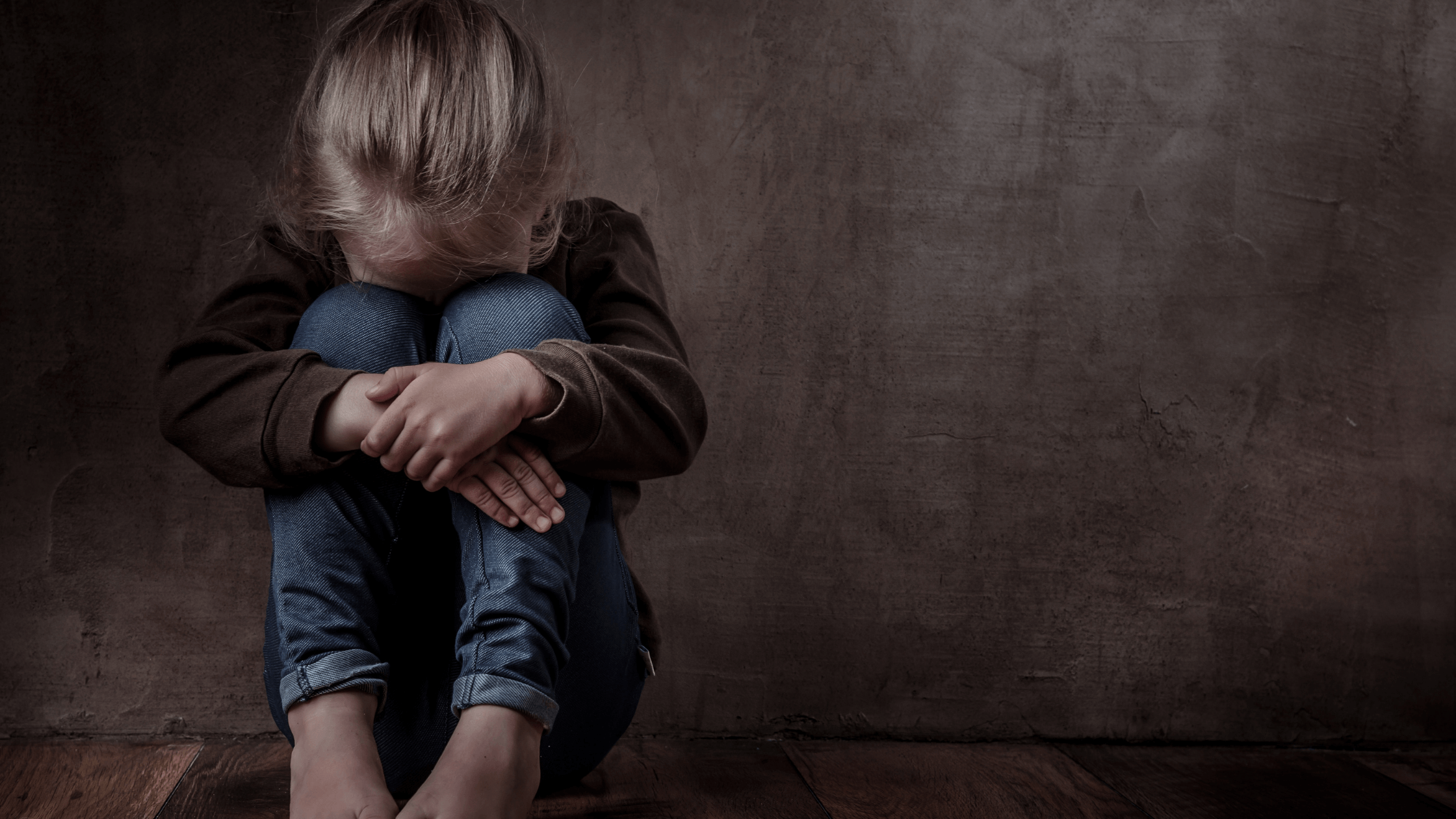
Growing up in a neglectful or toxic household can leave lasting scars, but it also provides an opportunity to break the cycle and create a healthier environment for the next generation. And it only takes one person to shift the trajectory. This journey is deeply personal and requires a commitment to change, but it's absolutely possible. Let's explore how you can take control of your healing process, hold yourself accountable for making positive changes, and remove violence from your parenting style.
Healing is Your Decision
One of the first steps in changing your parenting pattern is recognizing that healing is a personal journey. No one else can decide if you get to heal; that decision rests solely with you. It's important to give yourself permission to let go of past pains and embrace a future filled with love and understanding. Healing doesn't mean forgetting or excusing past neglect or toxicity; it means acknowledging your past and choosing to move forward in a healthier way.
Start by seeking support, whether through therapy, support groups, or trusted friends. These resources can provide you with the tools and encouragement needed to navigate your healing journey. Remember, it's okay to seek help; it's a sign of strength, not weakness.
Accountability and Making Big Changes
Once you've decided to heal, the next step is holding yourself accountable. This involves a conscious effort to make big changes and parent differently than what you experienced. Accountability means being honest with yourself about the behaviors and patterns you want to change and taking deliberate steps to make those changes happen.
Warning: It's FUCKING hard! But so worth it so --
Set specific goals for your parenting journey. This might include creating a more open and communicative relationship with your children or establishing a home environment based on respect and trust. Keep track of your progress and celebrate small victories along the way.
Surround yourself or fill your feed with role models who exhibit the parenting style you aspire to. Learn from their experiences and seek their guidance when faced with challenges. Remember, change takes time, and it's okay to stumble as long as you keep moving forward.
Removing Violence in the Form of Hitting
One of the most significant changes you can make is removing violence from your parenting, particularly in the form of hitting. Physical discipline can perpetuate the cycle of violence and negatively impact your child's emotional and psychological well-being.
Instead, focus on alternative discipline methods that emphasize communication and understanding. Techniques like time-outs, natural consequences, and positive reinforcement can be effective in teaching your child right from wrong without resorting to physical punishment.
Educate yourself on child development and the reasons behind certain behaviors. Understanding why your child acts a certain way can help you respond more effectively and empathetically. Remember, every moment is a teaching opportunity, and your actions can model the behavior you want your children to emulate.
Creating a Positive Home Environment
Creating a nurturing and supportive home environment is crucial in breaking the cycle of neglect and toxicity. Foster open communication by encouraging your children to express their thoughts and feelings without fear of judgment. Listen actively and validate their emotions, showing them that their voice matters.
Establish routines and traditions that promote family bonding, such as regular family meals, game nights, or weekend outings. These activities can strengthen your family unit and provide a sense of stability and security for your children.
Prioritize self-care and model it for your children. Show them the importance of taking care of oneself, both physically and emotionally, and encourage them to do the same. A healthy parent is better equipped to provide a loving and supportive environment for their children.
Changing the pattern of parenting after growing up in a neglectful and toxic household is a challenging but rewarding journey. By deciding to heal, holding yourself accountable, removing violence from your parenting, and creating a positive home environment, you can break the cycle and provide a nurturing upbringing for your children.
Remember, you have the power to shape your family's future. Embrace the journey with compassion and resilience, and know that every step you take toward positive change is a step toward a brighter future for you and your children.
If you need help with that, that's where I come in. Contact me to get personalized coaching tailored to creating your personal parenting map.
*AI-assisted

